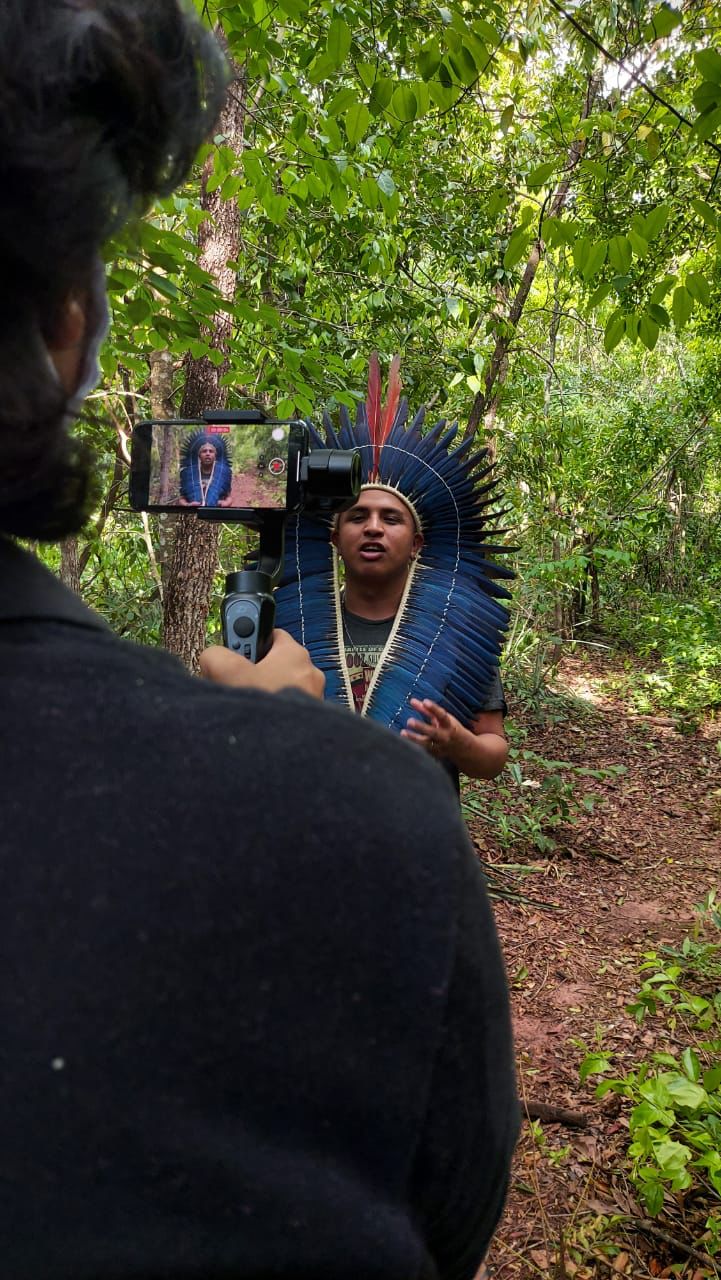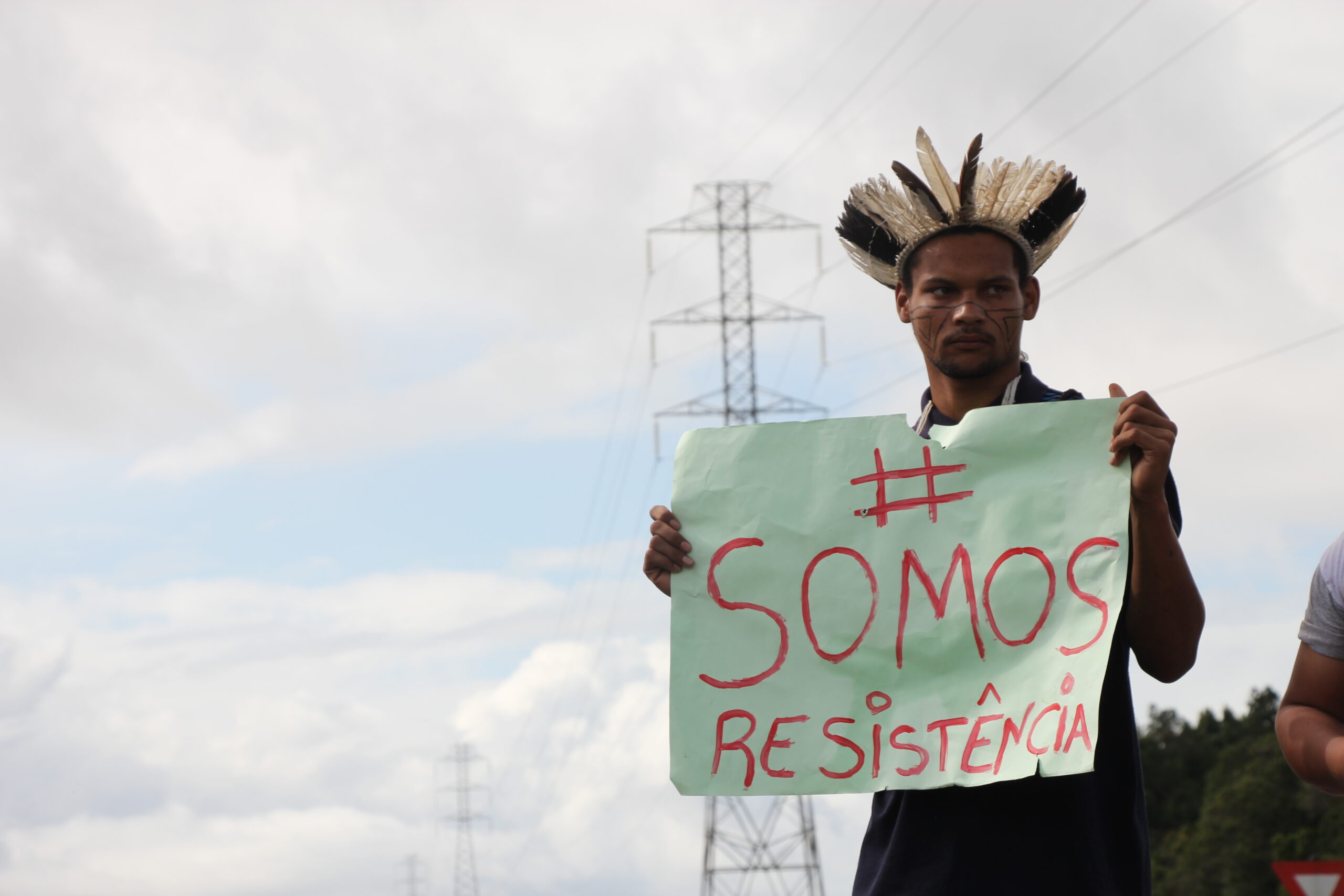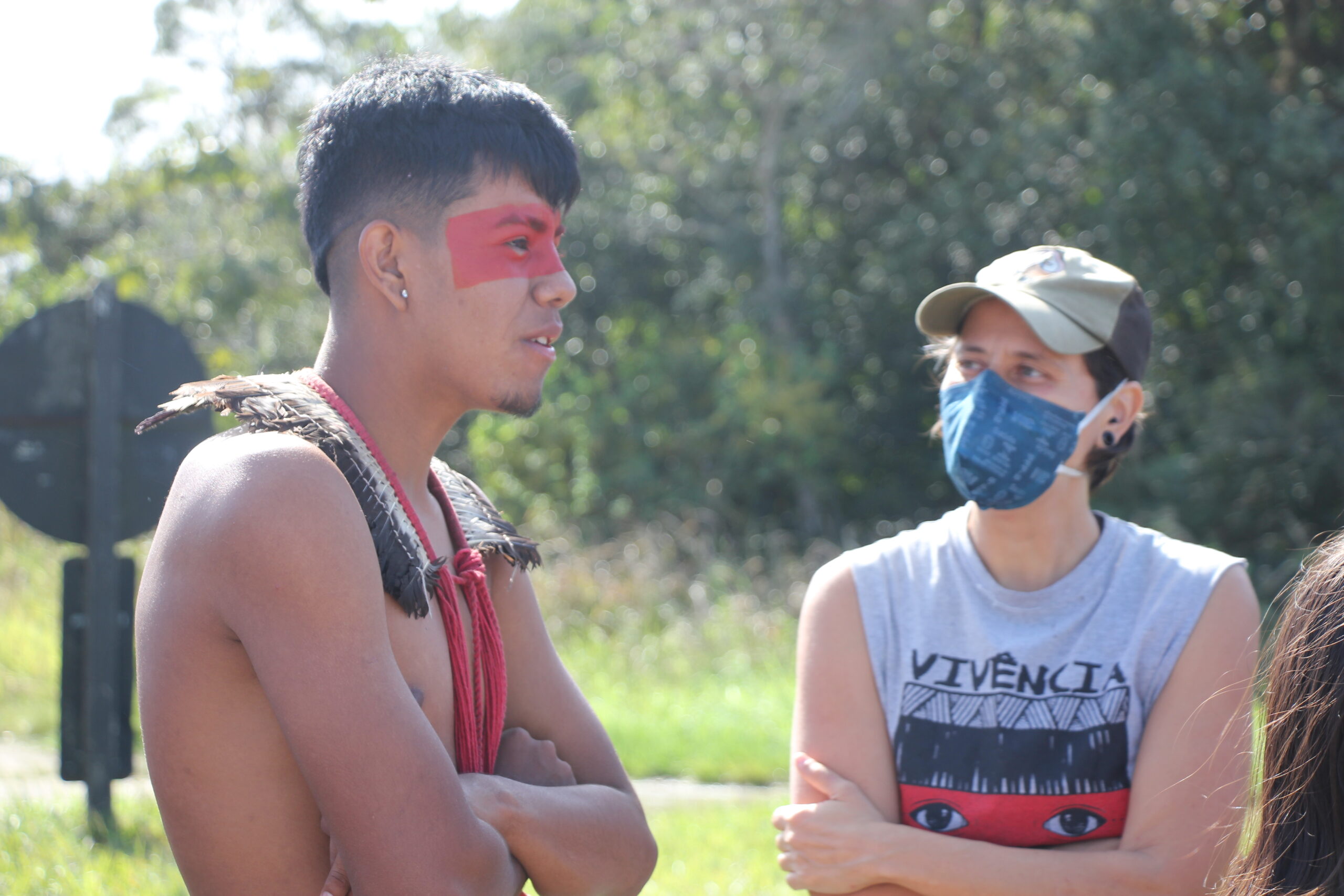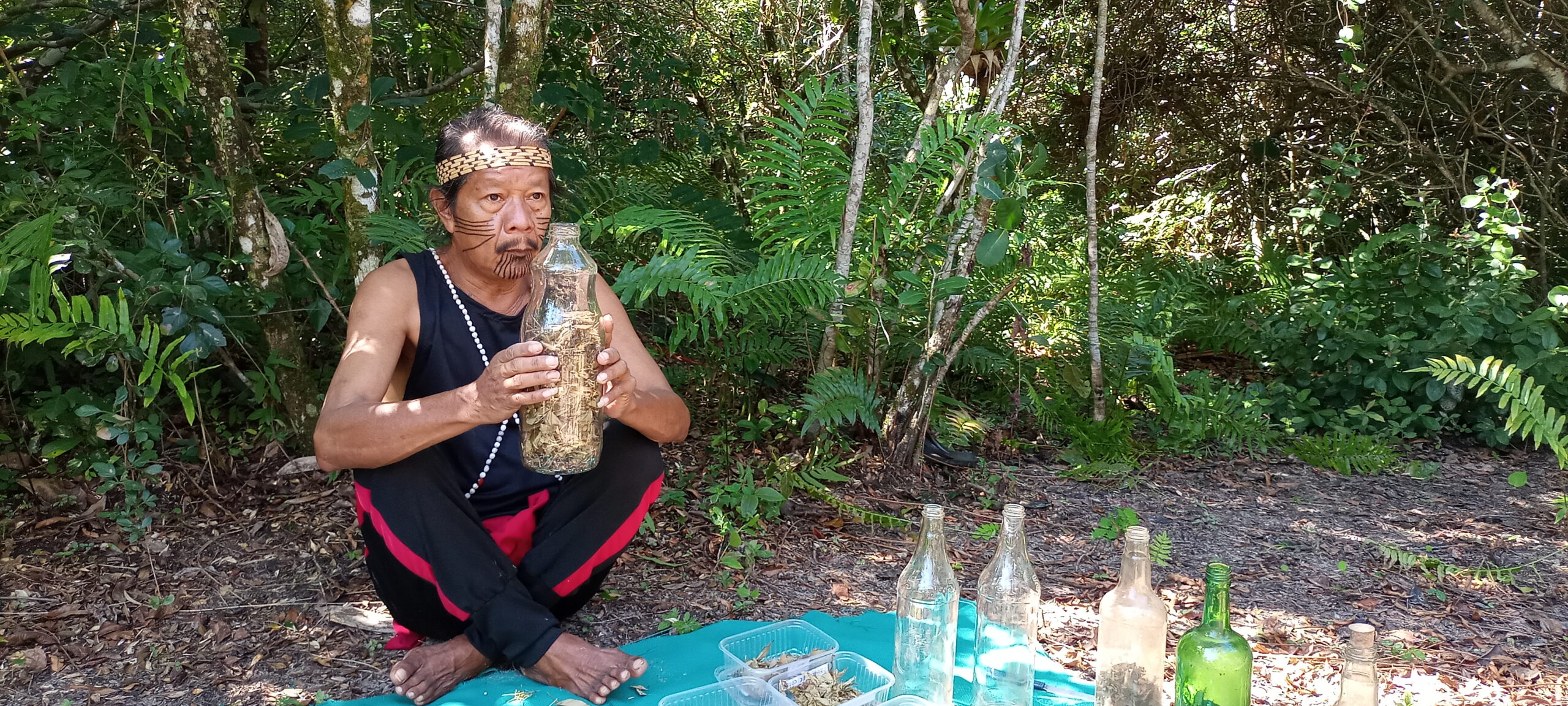Vivência na Aldeia: knowledge in defense of the future
Social project offers art and permaculture workshops, as well as an online store with the aim of renovating villages in the interior of São Paulo


Credit: Disclosure
By: Renato Silva / Lupa do Bem – Favela em Pauta
Founded in the Jureia Reserve area, in the town of Peruíbe, on the coast of São Paulo, the Vivência na Aldeia project is the result of the work of Josimas Ramos and Andreza Poitena, who, through permaculture, bioconstruction and sustainable planning, combined with the traditional knowledge of peoples originating. Today, the initiative aims to build and rebuild villages using these techniques.
Ramos says that, through interventions on permaculture and bioconstruction carried out in public squares in the region, the collective caught the attention of members of nearby villages, who made the first invitations to the duo. “They were retaking an area that had been devastated by a mining company and, knowing that we were dealing with permaculture, they invited us. We felt very honored to be invited by an indigenous village”, says one of the creators of the project.

Perhaps because it works based on a collective, consensual structure without hierarchies, the project has achieved acceptance in different villages of the Tupi and Tupi-Guarani peoples, such as the Tabaçu Rekoipy, Awa Porungawa Dju, Piaçaguera and Tapirema villages.
In addition to work in the villages, the project organizes visitation events and workshops that go beyond tourism. Ramos says that the experiences offered by the project to interested parties represent much more than visits to the villages. “People will cook, wash dishes, clean bathrooms. When they arrive in the community, they are part of the organization of the project itself. They shoulder the responsibilities of the event: taking care of the children, taking care of the elders, fetching water, helping in the kitchen”, points out Josimas.
The mobilizer emphasizes that, even if the project prepares a structure to receive people who come from far away, it is important that they take part in it. “We make sure that people really fit into the community’s desires, right?”, he adds.


Permaculture as a method
The co-founder stresses that, in the performance of the project, it is important that communities or villages seek them out, since the project does not present itself as a solution beyond what each community already has. Still, with the practice of permaculture, the project applies the concept that Ramos calls a harmonious way of thinking about life in relation to the environment, with less energy spending and generation of less damage.
“Permaculture is not you growing food. It’s planting food, but also knowing that the water that will water this food has to be nearby and that this food will later generate fertilizer, that you will make a cycle with everything”, he explains.


He reinforces that the permaculture proposal is not about building a house out of clay, but about seeing it as an element. “There is a culture in housing. But how much energy do you consume in terms of bringing things into your house, and the food that you buy, what do you do with your waste afterwards? How you deal with the surroundings of all this are the solutions to transform life in an easier, more sustainable way”, he concludes.
For the indigenous teacher, Kunhã Nimboatsyy Dju, the arrival of the project was important to develop the buildings, the village itself, and also for community-based tourism, where the strengthening of culture takes place.


“With this project, we have been achieving many things, in addition to bringing income to the community. But the main role is environmental protection in the community. The Vivência na Aldeia project has been a great partner, participating in the sustainability of the community, with our way of life respected above all”, says Professor Kunhã, which in Portuguese means Guaciane. The teacher belongs to the Tupi Guarani ethnicity and lives in Aldeia Tapirema, which is in the city of Peruíbe and has already received one of the so-called “village experiences”.
The way the project deals with decision-making is also allied to the practices encouraged by the project, such as permaculture and bioconstruction. Ramos says that, with each invitation from the villages to a new theme or project, decisions always come from horizontal meetings with equal speaking power, from elders to children in the community. “Everyone is heard, some more shy, some more talkative, some more lost, others more found. We are making that brainstorm and everyone is giving their opinion. Anyone who has a little more experience with something brings it and this is also discussed”, he adds.
Offered activities
Currently, the project offers courses and an online store, where posters and t-shirts with art donated by indigenous artists are sold, in order to enable the continuity of the project, as well as booklets that complement the training of courses proposed by the initiative.
Among the courses produced by the project, there is the “bottle” course, a course on indigenous graphics and natural inputs, among others. At the moment, the online course on indigenous phytotherapy is open for registration, and is taught by the elderly Catarina Delfina and Dhevan Kawin, Tupi Guarani indigenous people from the Piaçaguera Indigenous Land.


